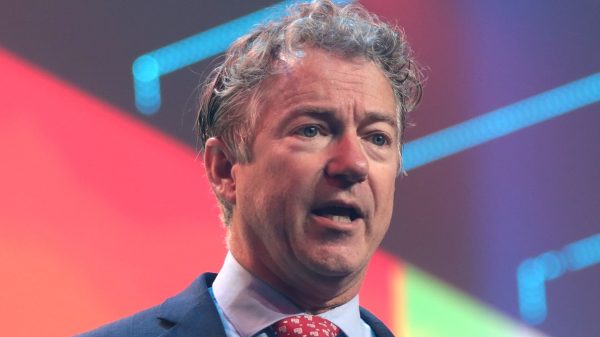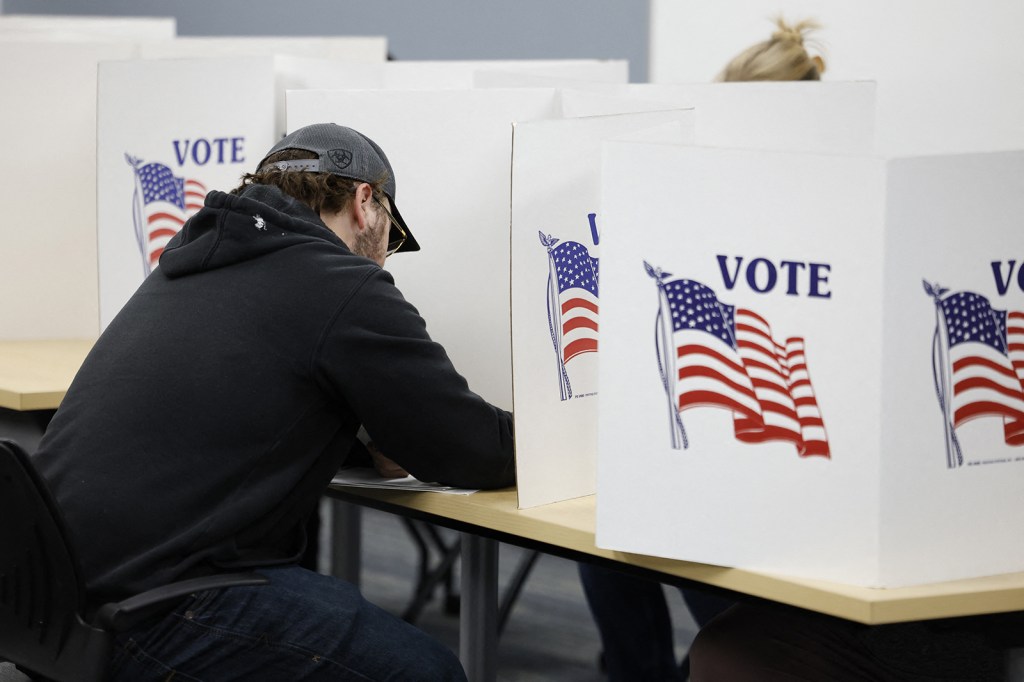By John T. Bennett, CQ-Roll Call
WASHINGTON — Voters who have not yet cast ballots will head to the polls Tuesday, bringing one of the most wild and vitriolic presidential races in American history to an end — the campaigning at least, but perhaps not the legal battles.
Vice President Kamala Harris and former President Donald Trump, the Democratic and Republican nominees, continued campaigning Monday in a contest that the latest polls suggest could be among the closest outcomes ever. True to the tone of their truncated race since late July, they both continued to plead for votes by warning as much about their opponent as trying to sell their own ideas.
“We want to go to Mars and all,” Trump said Monday at a rally in Raleigh, N.C., before minutes later slamming President Joe Biden over terminating a permit for the XL Pipeline on his first day in office. “What I want it for is defense. … You’ve got to be in space. … We were being lapped by China. They’ve got a lot of stuff up there.” It was the latest example of what Trump refers to as “the weave,” his own distinct, if meandering, set of exhortations.
Harris, on the flip side, mostly stuck to her stump speech at stop after stop, reprising lines even in interviews.

Issues like the economy and the nixing of federal abortion rights protections by the Supreme Court’s six conservative justices have long been among voters’ top issues, according to polling data and reporting. But evidence suggests other factors in recent days and weeks would also play a major role.
After some positive October polling data points for Trump, surveys released over the weekend suggest any momentum for him has stalled.
Vegas Insider, an oddsmaker, dropped his chances of winning over the weekend. “While Trump still holds the lead, the sudden drop over the weekend — from 64.49 percent to 58.49 percent — suggests that confidence may be waning among bettors,” a spokesperson said in a Monday statement. “Meanwhile, Harris’s surge by 5 points to 45.85 percent highlights her growing momentum, making this a tighter race than before.”
Here is a snapshot of the issues and factors that should tip the election.
Keystone ‘collar counties’
All eyes have been on Pennsylvania for months, even before Biden ended his bid for a second term.
The most recent polls in the Keystone State showed a dead heat, with a New York Times polling average updated Monday putting Trump narrowly ahead, 49 percent to 48 percent. During a Roll Call reporting trip to Bucks County, a Philadelphia suburb won by Democrats the last two elections, interviews were split, with voters describing their home as “divided” and split “50-50.”
Former GOP Rep. Charlie Dent of Pennsylvania said in a telephone interview that “I’d rather be Harris than Trump right now,” adding: “She has the better ground game and more energy, and she certainly has more growth potential than Trump.”
With Trump likely to again take most of the state’s rural counties, Dent said the main counties to watch are the “collar counties” that wrap around Philadelphia, and “Bucks, in particular.” But also, in a twist, the City of Brotherly Love, too.
“From what I’m seeing and hearing, it’s likely Harris won’t come out as strong in Philadelphia because of some erosion with Black and Latino voters from where [Hillary Clinton] was and where Biden was,” Dent said. “She’s going to win Philadelphia big. But the question is: Will it be big enough to offset Trump’s totals in all those red counties? She really needs those ‘collar counties.’”
‘Whether the women like it or not’
During a rally last week, Trump dropped another comment that could alienate women voters — a key voting bloc his campaign aides want to appeal to, but which the candidate has publicly said is not a problem.
Polls show a clear gender gap.
Trump last week vowed to “protect” women “whether the women like it or not.” The topic has been at the forefront of politics particularly since the 2022 decision by the Supreme Court to overturn the constitutional right to an abortion. All three of Trump’s nominees to the high court voted to overturn that right. The issue is a big part of Harris’ campaign theme of “freedom,” which also refers to her warnings about Trump having “unchecked” power, if elected again, that he would use to erode Americans’ freedoms.
A New York Times-Siena College survey released Sunday showed a widening gender gap. Harris had a healthy lead among women, 56 percent to 40 percent, while Trump led 55 percent to 39 percent among men.
“The economy probably registers as the top issue for most voters,” Dent said. “But it really does seem like abortion might be the top motivating issue when it comes to actually going out to vote, especially for women.”
Late deciders
A senior Harris campaign official on Friday told reporters its internal polling was showing “new votes” showing up for the vice president.
The more-confident tone was based on voters who are deciding in the race’s final days, the senior official said.
And rather than stick to his campaign’s economy- and immigration-heavy script on the teleprompters at his rallies, Trump has provided headlines with some of his riffs.
“I shouldn’t have left, I mean, honestly,” Trump said Sunday during a rally at a small airport in Lititz, Pa., adding before cutting himself off: “We did so well, we had such a great…”
On Monday, he told a Raleigh, N.C., crowd that then-Speaker Nancy Pelosi was “crazy” and “could have gone to jail” for ripping up her copy of his State of the Union address at the conclusion of his February 2020 speech in the House chamber.
Economic anxiety
One of the issues hamstringing Harris is the economy. The White House has pointed to consistent indicators that show a healthy and growing U.S. economy.
But voters have largely not bought that, and Trump begins many events by asking the crowd if they are better off than four years ago.
The economy was the top issue for 24 percent of likely voters, according to the most recent Times-Siena poll, with abortion next at 18 percent and immigration at 15 percent. The economy also was the top issue for likely voters in all the battleground states, followed by abortion — except in Arizona, where immigration was second.
“Trump has won the messaging battle in October,” Ford O’Connell, a GOP strategist, said during a telephone interview. “She’s not talking about issues she wants to talk about. She has not really been able to talk about the future of America and her vision.”
The former president’s campaign began using this slogan on signage the last few weeks, including on signs affixed to his lecterns: “Trump will fix it” — although the “it” in question is open to interpretation.
And it all has yielded one upshot that has largely not budged for months: This is a toss-up election that could be decided by a few thousand votes spread among seven toss-up states.
©2024 CQ-Roll Call, Inc., All Rights Reserved. Visit cqrollcall.com. Distributed by Tribune Content Agency, LLC.

















































